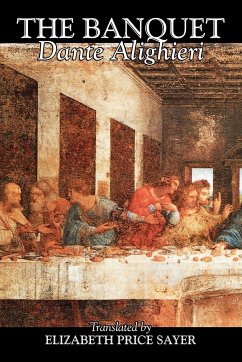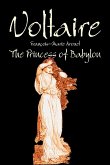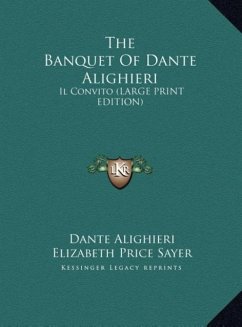Dante has been called "the Father of the Italian language". In Italy, Dante is often referred to as il Sommo Poeta ("the Supreme Poet") and il Poeta; he, Petrarch, and Boccaccio are also called "the three fountains" or "the three crowns". Let those come to us -- whosoever they be -- who, pressed by the management of civil and domestic life, have felt the human hunger for True Knowledge . . . and let all of us sit together at one table -- for the Banquet! Written in his final days, after the completion of his masterful Divine Comedy, Dante Alighieri's The Banquet presents many of his most compelling thoughts as to how a life of maturity and civility should be conducted.
Bitte wählen Sie Ihr Anliegen aus.
Rechnungen
Retourenschein anfordern
Bestellstatus
Storno









